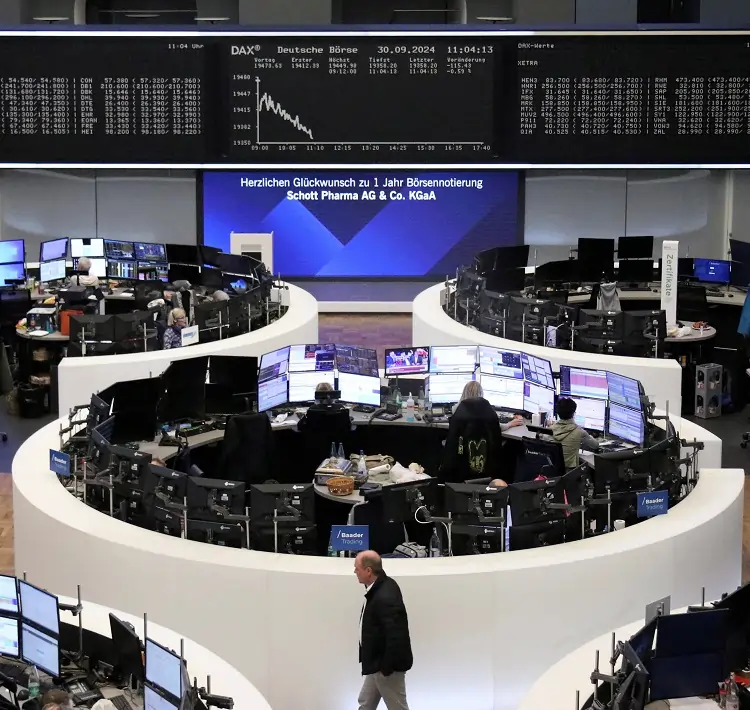
A look at the day ahead in European and global markets from Stella Qiu
Services PMIs due across Europe on Thursday are likely to show further moderation in activity and cement expectations for rate cuts in the region, while potential rate moves in New Zealand and the U.S. are also in focus.
Investors are already betting the European Central Bank will cut rates by 25 basis points at its next two meetings, in October and December, after top hawk Isabel Schnabel sounded more sanguine about inflation coming under control.
While services are expanding in Britain, the composite PMIs in Germany and elsewhere in Europe are expected to continue showing contraction in data for September.
In the U.S., jobless claims and the ISM services survey will top Thursday’s data docket, although the main event will be Friday’s payroll figures.
In New Zealand, expectations are rising among economists that the central bank will cut by 50 bps at each of its meetings in October and November.
The manufacturing PMI in global trade bellwether Singapore remained in expansionary territory in September, data showed late on Wednesday. New orders were up and the electronics PMI hit its highest since 2018 although analysts cautioned of possible weakness ahead, as rising input prices may point to supply chain challenges while backlogs in electronics orders are subsiding.
Asian markets, meanwhile, had a mixed day, with the MSCI ex-Japan index falling 1.4%, retreating from a 32-month peak. That was driven by a 3.5% drop in Hong Kong’s Hang Seng, which pulled back following a meteoric rise of 30% in just three weeks.
Hong Kong tech shares were down more than 5% and property stocks were headed for their largest one-day drop in almost two years, falling 7.2%.
The other big mover was Japan’s Nikkei, which rallied 2.3% as newly elected Prime Minister Shigeru Ishiba shed his hawkish feathers and essentially told the Bank of Japan not to hike rates any further. BOJ policy dove Asahi Noguchi reinforced that message, saying the central bank must patiently maintain loose monetary policy.
That’s good for Japanese stocks, but not so much for the yen, which dropped to its lowest in month. The currency fell 2% overnight and was last at 146.9 per dollar.
Markets now indicate almost no chance of a BOJ tightening in October and an increase of just 4.6 basis points in December, or less than an even chance of a 10 bp move. Rates are seen only reaching 0.5% by the end of next year, from the current 0.25%.
Key developments that could influence markets on Thursday:
— HCOB Eurozone Services PMI
— U.K. S&P Global Servces PMI
— U.S. jobless claims, ISM services PMI
— Appearances by Fed Bank of Atlanta President Raphael Bostic and Bank of Minneapolis President Neel Kashkari,
(By Stella Qiu; Editing by Edmund Klamann)


